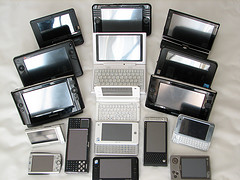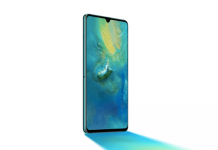
We all know about laptops, wireless, Wi-Fi and cell phones. But, do we understand the different types of wireless, applications and devices that have been created for our personal use? Purely for fun, let us look into the differences between wireless and mobile computing and the main applications and devices that are used.
Wireless refers to the method of transferring information between a computing device, such as a personal data assistant (PDA), and a data source, such as an agency database server, without a physical connection. However, not all wireless communications technologies are created equally, offer the same uses or are even mobile.
Mobile computing refers to computing devices that are not restricted to a desktop. A mobile device may be a PDA, a smart phone or a web phone, a laptop computer, or any one of numerous other devices that allow the user to complete tasks without being tethered, or connected, to a network. Mobile computing does not necessarily require wireless communication. In fact, it may not require communication between devices at all.
Wireless communication is simply data communication without the use of a landline. This may involve a cellular telephone, a two way radio, a fixed wireless connection, a laser, or satellite communications. Here the computing device is continuously connected to the base network.
Mobile or “untethered” computing essentially refers to a device that is not always connected to a central network. This group of devices includes laptops, newly created smart phones and also PDA’s. These products may communicate with a base location, with or without, a wireless connection
Now let us explain more about various technologies and interfaces that are used for wireless and mobile computing.
1. GSM
GSM stands for Global System for Mobile communications, which is one of the leading digital cellular systems. The GSM standard for digital cell phones was established in Europe in the mid 1980’s. GSM has now become the international standard in Europe, Australia and much of Asia and Africa.
2. CDMA
CDMA stands for Code-Division Multiple Access and is a digital cellular technology that uses spread-spectrum techniques to utilize different applications in different areas.
3. WLL
WLL is short for wireless in a local loop. Mobile telephone is primarily meant to provide telephony for people on the move. The telephone is meant to keep the person connected while he or she is away from their home or office.
4. 3G and EDGE
It is a specification for the third generation of mobile communication technology. 3G is dedicated to providing increased bandwidth. So much so that it can deliver 384 Kbps on a slow moving device, 128 Kbps when located in a car and up to 2 Mbps when attached to a fixed device or application.
5. SMS
Short message service is the transmission of short text messages to and from a mobile phone, fax machine and / or IP address. Messages must be no longer than some fixed numbers of alpha numeric characters and contain no images or graphics.
6. Email
Email is basically short form for electronic mail or, messages sent electronically. Electronic mail is changing how the world thinks about exchanging information. It has invaded every area of computing and has revolutionized science and business. Scientists across the world are searching for and using information through electronic mail.
Nowadays, technology is improving exponentially with each passing day. People, technology, gadgets and computers are making our lives easier and more luxurious. The only question that really remains is just how far we can go and how many improvements will be made. Are we going to get to the point where we all have Wi-Fi installed within our wrists via a mini chip? Or are new gadgets, concepts and ideas going to take over and revolutionize the way we live? Only time will tell. All we can do is stay informed, keep up to date and enjoy dabbling in the benefits that technology brings into our lives.




























